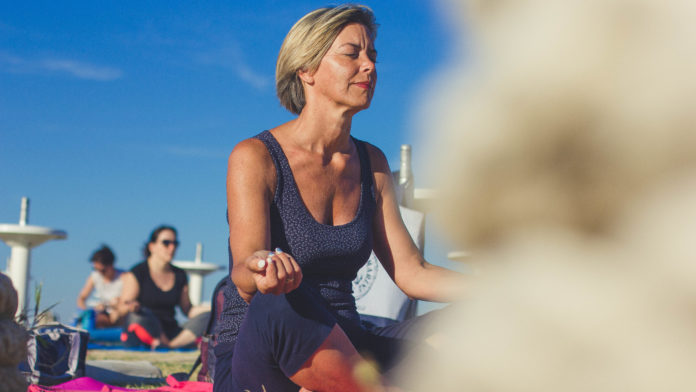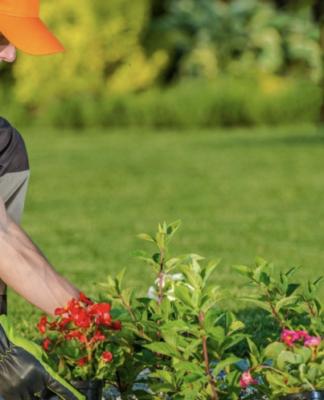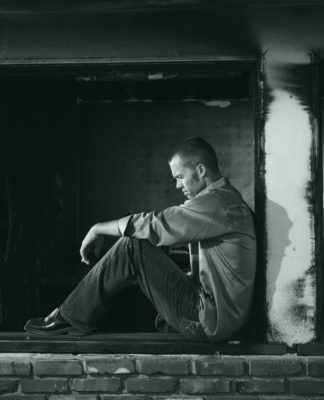Mindfulness is the new black. I love the current media buzz and the integration of
awareness practices into everything from psychotherapy to education and business.
Further, I love that western science is starting to have evidence-based research that
validates the value of such practices. Take a look at the amazing research going on
through The Greater Good Science Center through Berkley University to find
research, articles and skills for increasing mindfulness, happiness, forgiveness,
empathy, compassion, altruism and gratitude.
Jon Kabat Zinn defines mindfulness as: “The awareness that emerges through
paying attention on purpose, in the present moment, and non judgmentally to the
unfolding of experience moment by moment.” I like this working definition of
mindfulness as it includes both “wings of awareness”— focusing attention and non-
judgment.
In my psychotherapy practice, I guide people through many mindfulness techniques
whose aim is to gather the awareness back from wandering in the past (regrets) and
the future (worry) by connecting attention to the body in the present moment. The
techniques include noticing with the five senses or mind-body- bridging, and
focusing attention on sensation and feelings in the body or vipassana/insight
meditation. These techniques in themselves can be quite calming as they
momentarily quiet negative thoughts that tend to increase symptoms of anxiety and
low moods. They are skills that can be used in the moment and discretely anywhere
you find yourself— an emotional first aid kit you always have with you.
I notice personally and in others I work with that this aspect of mindfulness practice
can be embraced and utilized with success fairly quickly. Clients notice that paying
attention to sensation in the body helps them both track escalating symptoms and
calm them.
The Importance of a Non-Judgmental Approach
The Non-Judgmental aspect of mindfulness, as outlined in Kabat Zinn’s definition, is
often a more challenging aspect of the practice. It involves being open, curious,
compassionate and allowing of what is happening internally. The critical voice we
all live with inside our mind is brought to light as we deepen in awareness practice
and begin to pay attention to the nature of our thoughts. Often, it is hard to separate
oneself from critical thoughts enough to have the awareness that they are just
critical thoughts and not the truth. We might believe these thoughts are true about
ourselves based on messages we have internalized along the way. These beliefs can
exist as blind spots that make them unconscious to us. Or, if we do recognize them,
there is a part of us that truly still believes these thoughts are accurate and so they
are hard to put down.
Using Inquiry to Disarm Critical Thoughts
Inquiry practice is a level of investigation of one’s thoughts that can foster increased
capacity for non-judgmental awareness. Using it successfully involves meta-
awareness that one is using the mind to disassemble the mind. I believe that staying
aware of sensation in the body simultaneous to inquiry practice can have the best
results as it grounds and connects this mental work to the five senses and feelings in
the body. Being concurrently aware of thinking, feeling and sensing gives us access
to our fullest self and abilities.
The first step of inquiry is to notice that thoughts are just thoughts. I like Byron
Katie’s inquiry technique found in her book Loving What Is and at her website. I
often use this technique personally and with clients and I pair it with mind-body-
connection techniques. I believe this pairing deepens and enhances this process.
Practice: Investigate with Openness, Curiosity, Allowing and Compassion
To begin, become more present in your body by intentionally connecting your
awareness to your five senses. Start right now, by noticing colors and sounds in your
environment.
Connect to sense of touch by noticing the feeling of the surface you are sitting on.
Notice being supported in space and see if you can settle into being held. Notice if
this allows you to relax a bit.
Now notice the texture of the fabric of your clothes or the furniture and describe it:
velvety, smooth, cold, etc. Notice the temperature of the room. Once you feel
grounded and present, let’s begin our inquiry.
Think about a situation that is difficult for you currently, perhaps a situation in
which you have been feeling lack of confidence or one that is anxiety provoking.
Write down any negative thoughts about your self in this situation; i.e. “I am a bad
person,” or “I am not good enough” or “I am lazy”. Next, take each thought and work
through the following steps.
1. Is it true? We can spend a lot of time on this question. We could spend years
answering this question if we get lost in self-doubt. So move on to the next
step.
2. Is it absolutely true? I love this question and it can be a flash of insight that
moves us quickly out of the judgment. For example, when applied to the
thought “I am lazy”, inquire if you could you prove this to a court of law. Is
there any way to prove it beyond a reasonable doubt? Imagine what lengths
one would have to go in order to prove it (conduct an evidence-based study
for example) If you can’t prove it, then it is just a thought.
3. How does this thought affect me? Check in again with sensation in the body.
As you are working with this thought, how are you feeling right now? Notice
any place in the body this thought impacts you, for example tightness in the
chest or stomach or heaviness all over. Notice your posture right now and
your breath. If you find you are slouching as you do this, exaggerate that
posture so that you can feel the full effect these thoughts have on your well-
being. When you feel like this, how do you generally behave? Do you
withdraw from others, work harder, try to prove yourself in some way or
avoid doing difficult tasks even more? Reflect on the full influence of this
thought on your body, your feelings and your ability to function at your best
capacity. Had enough of this? Then go to the next step.
4. Who would I be without this thought? Imagine if you just let this thought go
and could be free of it, and notice if anything changes in your body. Do your
shoulders relax, does the tension in your jaw soften? Remember the posture
you assumed before and change it now to reflect how it feels as this thought
is sent away; stand up taller, breath deeper. Reflect on how you would do
things differently in your life and in your relationships without this
judgment. As this judgment subsides, feel an increased sense of well-being in
your body experienced as more energy, openness of heart and clarity of
mind.
5. What do you want to believe about yourself instead? As you work your way
through this inquiry process with each negative belief, see if you can rewrite
it into a positive statement or affirmation. For example, “I am doing the best I
can” or “I am just as motivated as others”. Remember, to be effective, positive
affirmations need to be genuine and of value to you. Don’t force yourself to
say something that doesn’t feel true. One way to work with this is to add the
phrase “I am learning to be more (motivated, kind, mindful)” as a way to start
to embrace new beliefs.


 Renee Podunovich is a licensed Clinical Mental Health Counselor offering psychotherapy in Salt Lake City, UT and beyond via online services. Renee earned a BA in Sociology and Human Services and a MA in Counseling. She has worked in human services for over 25 years and has been in private practice for 10 years. Renee is interested in health and holistic wellness, dance and movement, sustainable living and innovative designs and solutions. She is a freelance writer and has published two books of poetry: "Let the Scaffolding Collapse" (Finishing Line Press, 2012) and "If There is A Center" (Art Juice Press, 2008). Her writing workshops (in person and online) are designed to use creative writing as a tool for centering, reflecting and for personal growth. Renee offers caring, compassionate support and focused guidance to help people come into balance with their own inner wisdom and self-healing abilities and to make meaningful and lasting changes in their lives. She believes optimal wellness comes from feeling connected to our essential nature within and to the larger world around us. Renee's specialty is in mind-body therapies including EMDR therapy, mindfulness practices and meditation techniques that build awareness and compassion. Whether you are in a period of difficult transition or wanting to deepen your connection to your creative process and build positive resources, Renee provides a safe environment where your wisdom and needs are put first. Get ready to engage at the next level in your professional, creative or personal life!
Renee Podunovich is a licensed Clinical Mental Health Counselor offering psychotherapy in Salt Lake City, UT and beyond via online services. Renee earned a BA in Sociology and Human Services and a MA in Counseling. She has worked in human services for over 25 years and has been in private practice for 10 years. Renee is interested in health and holistic wellness, dance and movement, sustainable living and innovative designs and solutions. She is a freelance writer and has published two books of poetry: "Let the Scaffolding Collapse" (Finishing Line Press, 2012) and "If There is A Center" (Art Juice Press, 2008). Her writing workshops (in person and online) are designed to use creative writing as a tool for centering, reflecting and for personal growth. Renee offers caring, compassionate support and focused guidance to help people come into balance with their own inner wisdom and self-healing abilities and to make meaningful and lasting changes in their lives. She believes optimal wellness comes from feeling connected to our essential nature within and to the larger world around us. Renee's specialty is in mind-body therapies including EMDR therapy, mindfulness practices and meditation techniques that build awareness and compassion. Whether you are in a period of difficult transition or wanting to deepen your connection to your creative process and build positive resources, Renee provides a safe environment where your wisdom and needs are put first. Get ready to engage at the next level in your professional, creative or personal life!





















